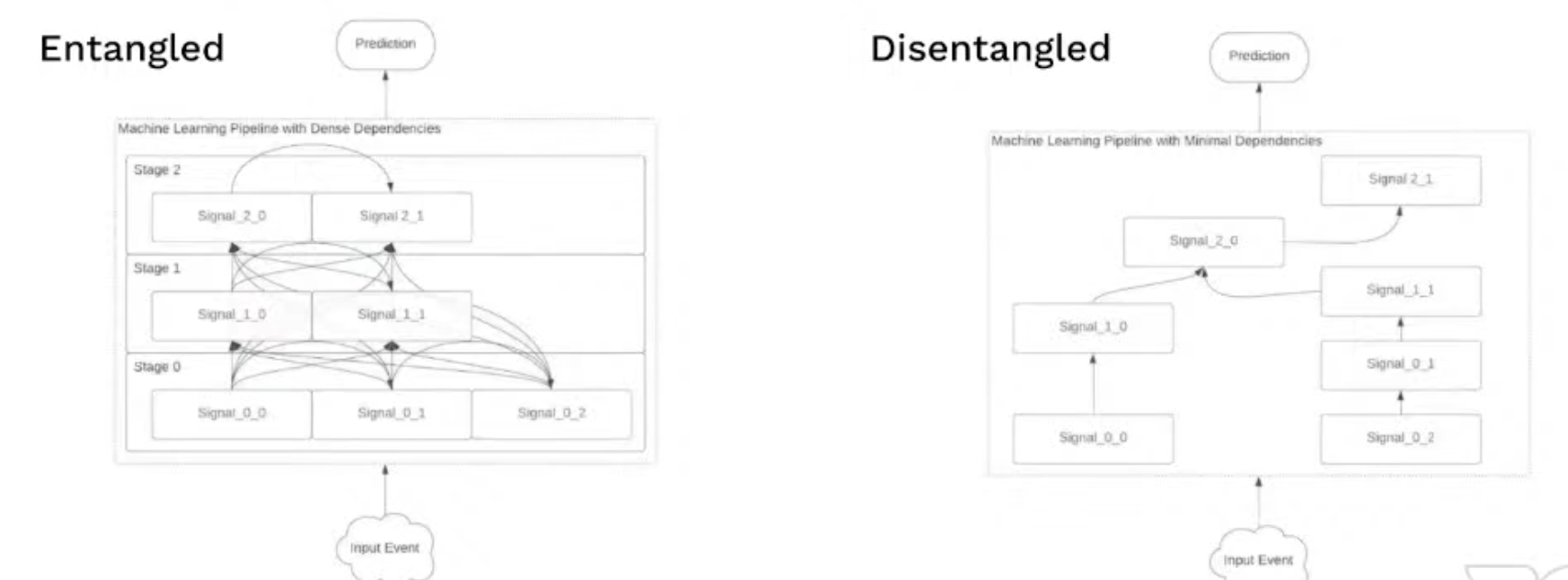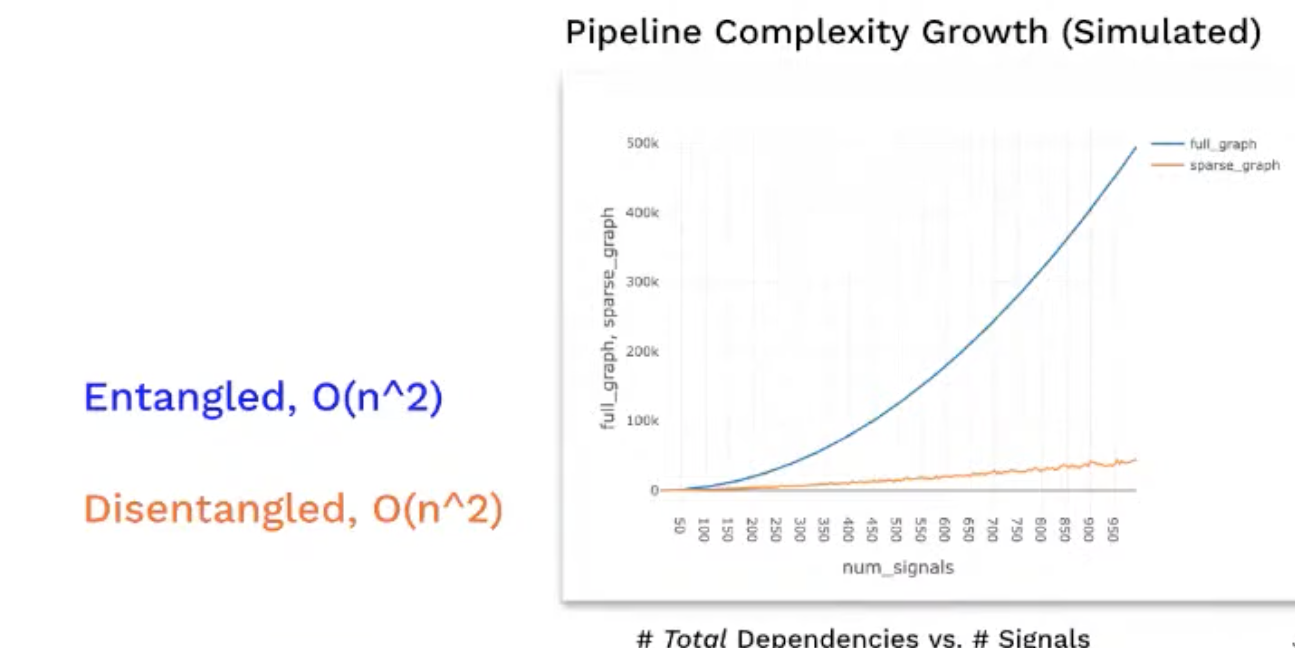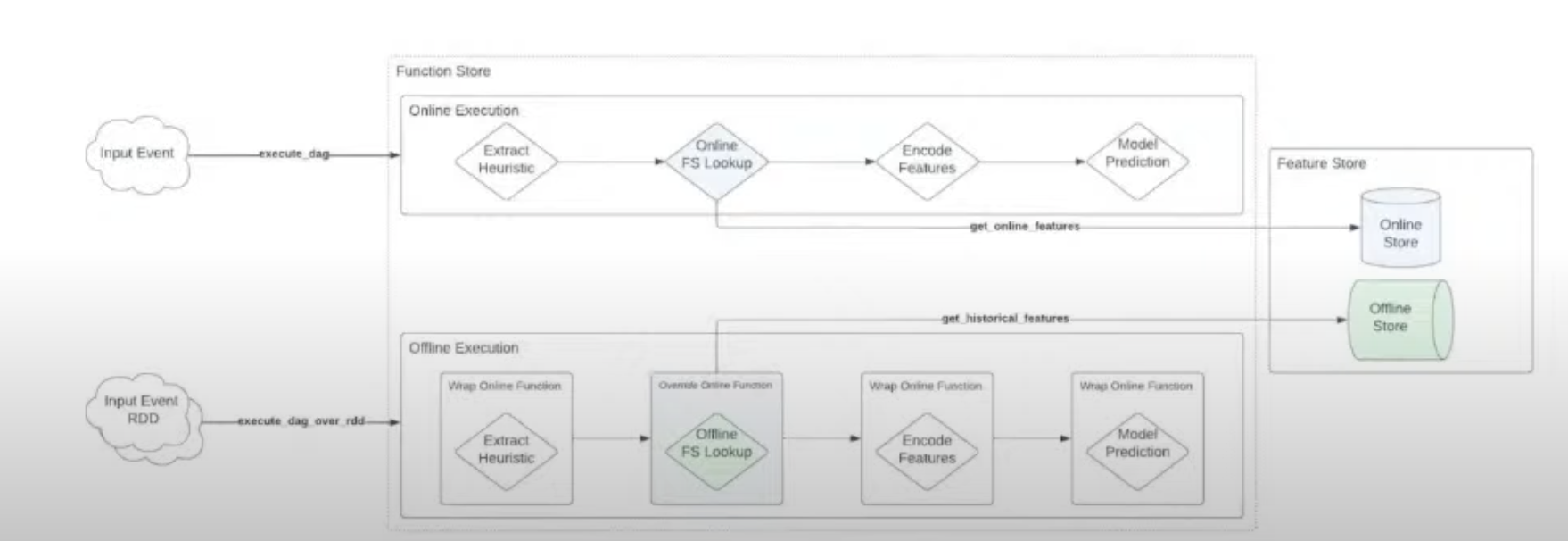8. Compass: Composable & Scalable Signal Engineering, Justin Young, Abnormal Security
https://www.youtube.com/watch?v=nyaZm04qWl8 (opens in a new tab)
-
Use case: stop all email attacks
- Need high recall
- High precision
- Rapid iteration cycle, because attackers update their techniques
-
Mantra: move fast and don’t break things
-
How to build an ML platform?
- Prevent entanglement
- Prevent online / offline skew
-
Entanglement
-
“Changing anything changes everything”
Hard to hard signal and basically impossible to remove ones, with an effect anywhere later on.
-
Function composition: f(x) = h(x, g(x))
Function composition are the primary responsibility of ML pipeline
-
Unconstrained function composition is the root of entanglement
Total dependencies grow square with the total of signals
So we need constrained function composition instead


- How does the signal dag work in production?
@compass.single_output_transformation("variable_len") def extract_len(input_variable: str) -> int: return len(input_variable)- Key features of dag:
- Data structure append-only
- Easy to understand the pipeline: list dependencies and viz
- Validate properties of the pipeline: no cycle, unused branch, every signal produced exactly by one transformation
- Platformize pipeline: propagate errors downstream, parallel execution of parallel Dags
-
-
How to execute this offline/online at scale?
- Most of the time offline and online transformation will use the same transformations

-
Key takeaway: make sure your ML pipeline implements both a feature store and a function store!

The system should be function centric